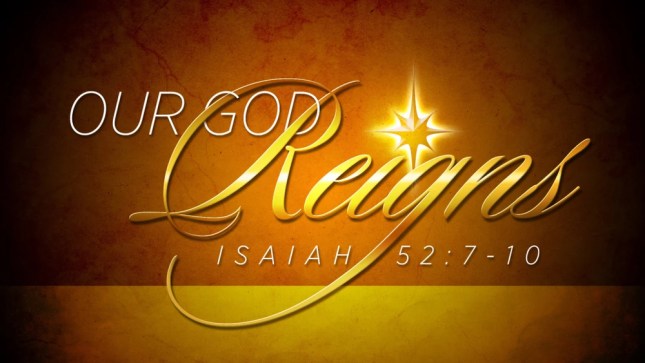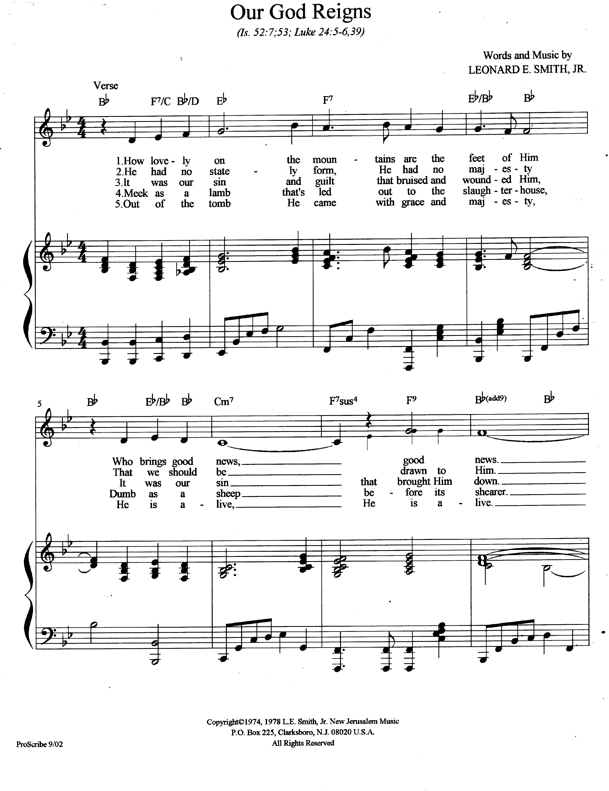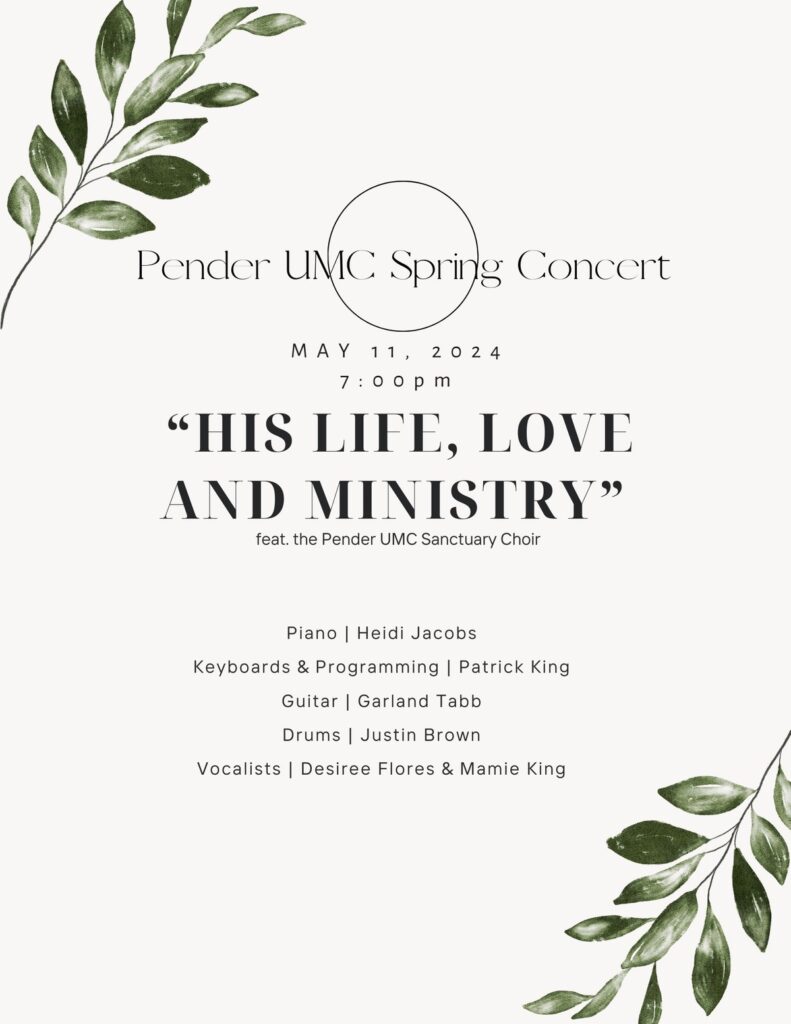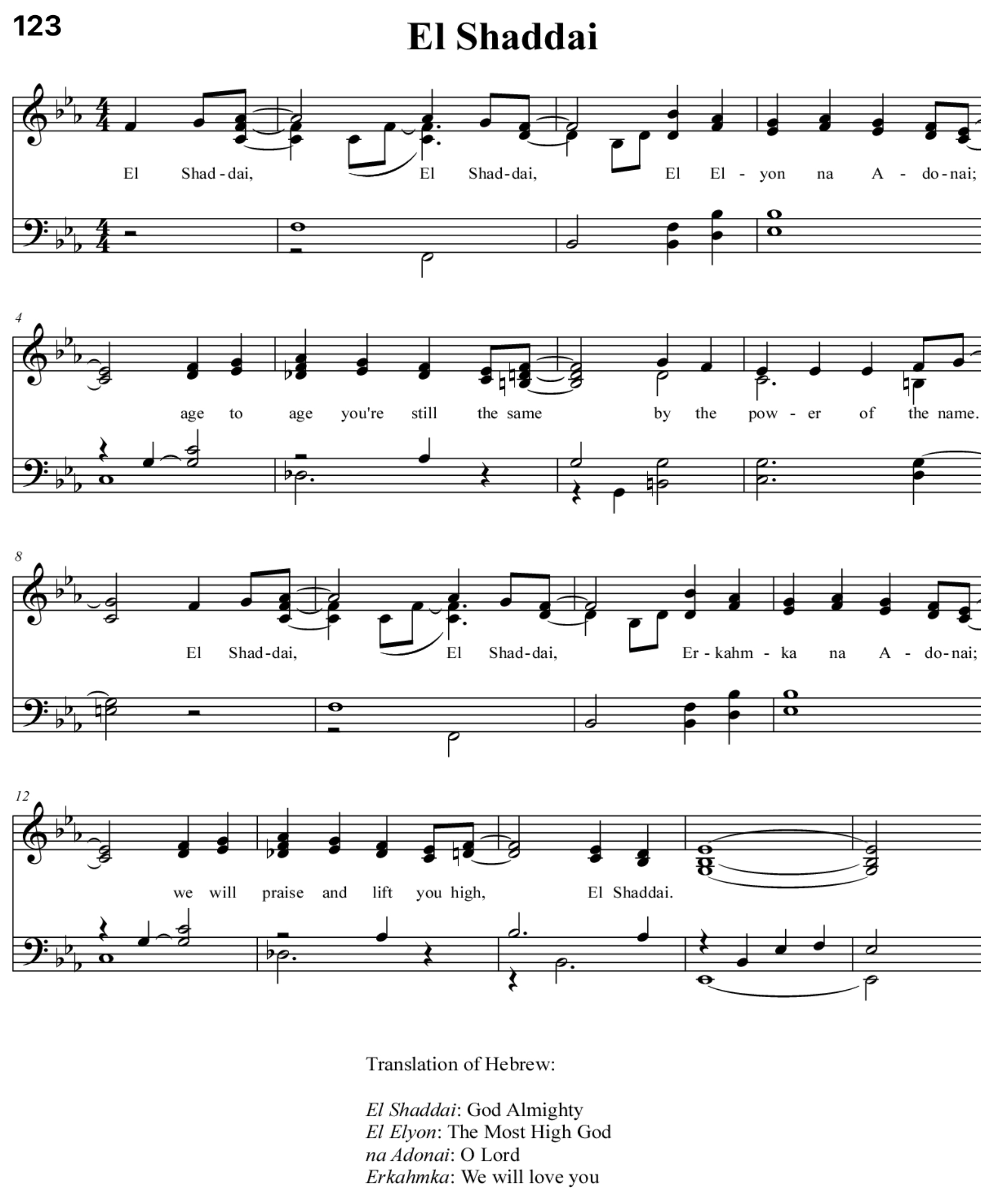

Our God Reigns, World Communion Sunday, October 5, 2025
On this special Sunday at Pender United Methodist Church, the opening hymn was “Our God Reigns” by Leonard Smith. It was joyfully sung by the Pender Sanctuary Choir and congregation under the direction of Patrick King, Director of Music Ministries, accompanied by Wenru Yang on piano.
This uplifting hymn reminds us of God’s sovereignty and grace that unites believers around the world. On this 17th Sunday after Pentecost, we join Christians everywhere in proclaiming: Our God reigns!
“How lovely on the mountains are the feet of him who brings good news, who proclaims peace, who brings glad tidings, who proclaims salvation, who says to Zion, ‘Your God reigns!’” — Isaiah 52:7
May this song inspire gratitude and unity as we remember that God reigns over all nations, all people, and all hearts.
“Our God Reigns” | Offertory at Pender UMC | January 5, 2025
On January 5, 2025, during a special Epiphany service at Pender United Methodist Church, the offertory featured a moving performance of “Our God Reigns” by Leonard Smith.
The anthem was beautifully sung by the Pender UMC Sanctuary Choir, under the direction of Patrick King, Pender’s Director of Music Ministries, accompanied by Abe Garver on cello and Heidi Jacobs on piano. This heartfelt rendition reminded us of the power and majesty of God’s reign, adding a deeply spiritual element to the worship service.
We are grateful to our singers, Patrick, Abe, and Heidi for sharing their incredible talents and inspiring us through this timeless anthem.
Pender UMC Sanctuary Choir Presented “Our God Reigns”
On August 25, 2024, the Pender UMC Sanctuary Choir, under the direction of Patrick King, delivered a powerful performance of “Our God Reigns” by Leonard E. Smith, Jr., inspired by Isaiah 52:7. This uplifting song, celebrating the message of salvation and God’s sovereignty, was beautifully accompanied by Mark Severeniuk on tuba and Heidi Jacobs on piano.
Isaiah 52:7 speaks of “good news,” originally referring to Israel’s delivery from captivity and return to Jerusalem. Today, Christians sing these words to celebrate our delivery from sin through Christ (Romans 10:15-16), who brings salvation and a restoration of God’s rule, resulting in peace and happiness. The song text skillfully combines Isaiah’s message with the timeless theme from the Psalms: Our God reigns!
Join us in this celebration of faith and let the music remind you of the everlasting reign of our God.
How lovely on the mountains are the feet of him
who brings good news, good news;
Announcing peace, proclaiming news of happiness:
our God reigns, our God reigns!
Refrain:
Our God reigns, our God reigns, our God reigns,
our God reigns, our God reigns!
Leonard E. Smith, Jr., (b. Philadelphia, PA, 1942) composed this song in 1973 in Riverton, New Jersey. Educated at Mount St. Mary’s Seminary in Emmitsburg, Maryland, where he received a BA in philosophy, Smith first taught in public high schools, but his evangelical efforts in the schools created problems, resulting in his dismissal. He then began painting houses to support his family.
One night as he was reading Isaiah 52 he was overwhelmed by the conviction that God was in control of his life and of all creation; he wrote this song that night in just five minutes. The song was first sung at New Covenant Community Church, where Smith served as worship leader. Though not published for some time, it became known internationally when evangelist Bob Mumford included it in his crusades. It was first published in a Servant Publications hymnal, Songs of Praise (vol. 2, 1977). In 1978 Smith added four additional verses. He has published over 130 Scripture songs with New Jerusalem Music Co.
From Today’s Christian Living: The Story Behind the World-Renowned Song “Our God Reigns”
By Leonard E. Smith
Sometimes you have to reach bottom before you look up to see God at work. Back in 1973, I was out of work again and depressed — actually very depressed. My wife and I had a son, an apartment, a car, and lots of bills to pay. I had also made myself unemployable as a high school teacher with just too much Jesus talk in class. I guess I was naive to think that talking about Jesus was more important than teaching Latin or English literature.
One morning I was reading the Bible and came to Isaiah 52:7: “How lovely on the mountains are the feet of Him Who brings good news, announcing peace, proclaiming news of happiness: your God reigns.” My heart began pounding in my chest because, through what I read, God spoke to me: “You’re going to get through this, and you will be fine. In fact, you’ll do very well.” I just felt the dark cloud lift off me. I picked up my guitar and, in a few minutes, Our God Reigns was born! I had one verse and the chorus. It wasn’t so much that I wrote it as I received it!
How lovely on the mountains are the feet of Him Who brings good news, good news Announcing peace, proclaiming new of happiness Our God reigns, Our God reigns! Our God reigns! Our God reigns! Our God reigns!
A couple of months later, a traveling evangelist visited our church, heard the song, and taught it as he went from church to church. It took me three more years to complete the other verses that made this Scripture chorus into a hymn that went around the world.
After the three big Christian music publishers passed on publishing my song in the late ’70s, I decided to keep the copyright and establish New Jerusalem Music to manage my songs, as well as the songs of our friends and my son, Daniel C. Smith, of the group Danielson Family. The decision to create my own music company worked out incredibly well over the decades. This was the fulfillment of His promise all those years ago when He told me that I would do very well. I know we really do have a Good Shepherd who is guiding us, closing doors, and opening doors.
Every one of us has experienced disappointment and failure and had our hearts broken. But we don’t need to be bitter about it. If we look closely, we’ll see how God worked it out for our good. Over time, we become more understanding, more patient, and kinder to others who have been overlooked and forgotten. We must not forget that suffering is the very thing God uses to refine and strengthen us. Jesus set the pattern that crucifixion comes before resurrection.
I would never have taken up learning how to play the guitar in seminary in the ‘60s if I hadn’t been so desperately lonely for so long. And I would never have started writing Scripture songs if I hadn’t so deeply needed the comfort of the Psalms of David, who also knew something of loss and pain and heartbreak.
Looking back, I’m grateful I was fired from that last teaching job. It proved to be the door God closed before He opened a new door for me. That open door has allowed me to enter into a wonderful new world. Thank you, Lord, for being such a good, loving, kind, faithful Shepherd. I know I’m in Your good hands and that will never change.




